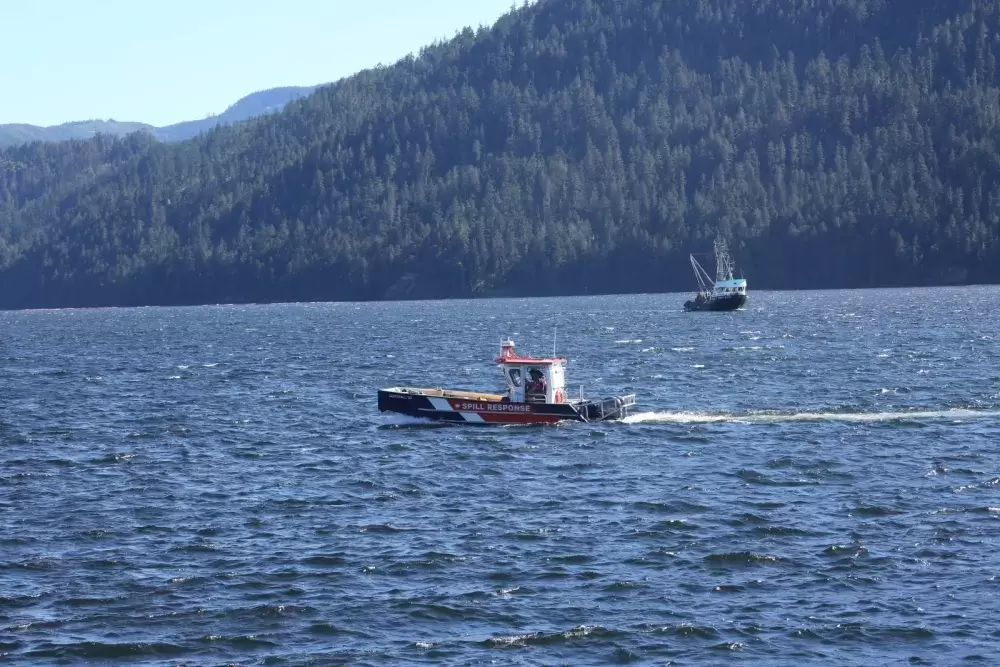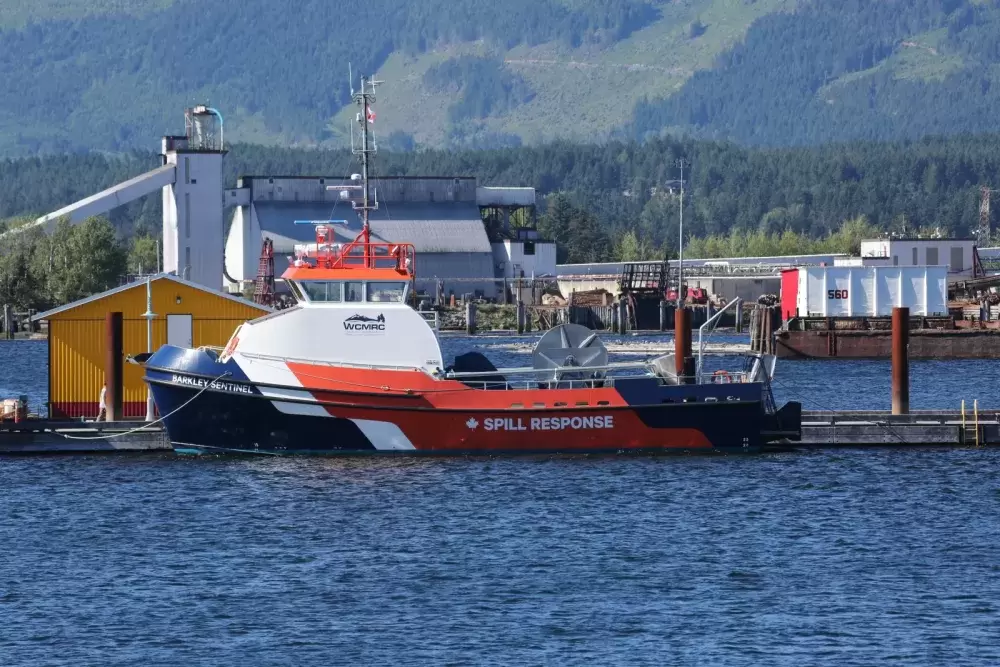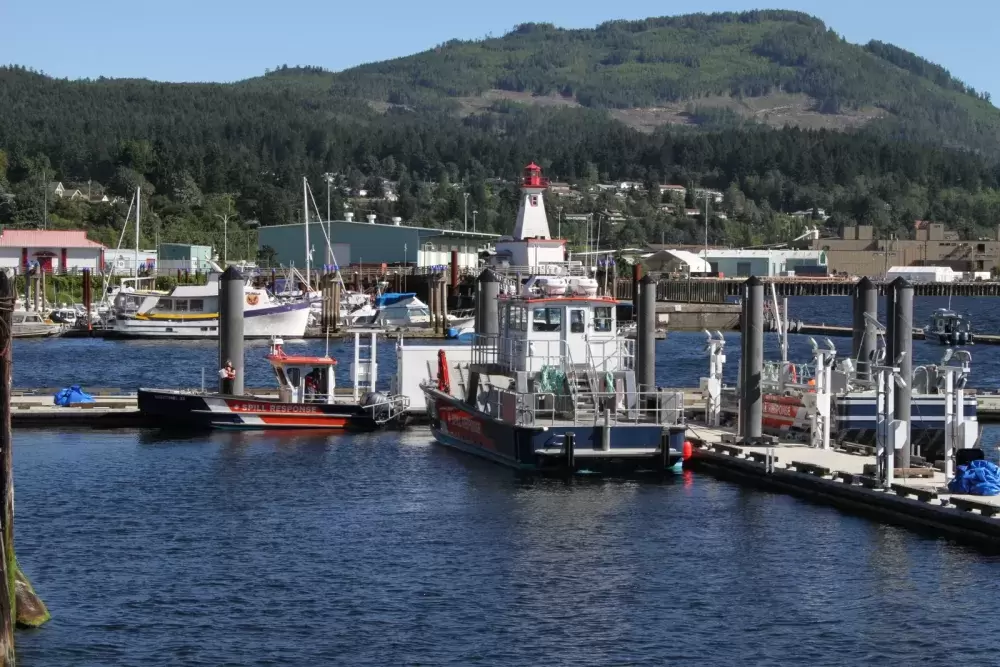A 34-foot gillnetter sank in the early morning on July 11 near Nahmint Bay, with around 500 litres of diesel fuel onboard.
The Canadian Coast Guard (CCG) received a report around 3:15 a.m. that the vessel, which was actively fishing, got caught on rocks as the tide was receding. The resulting impact caused the vessel to lean and sink.
CCG’s Bamfield lifeboat station crew were the first on the scene and observed a “small non-recoverable light sheen about four cables south of the vessel, but no pollution was observed around the vessel itself,” said Michelle Imbeau, spokesperson for the CCG.
The Western Canada Marine Response Corporation (WCMRC) is working alongside the CCG to respond to the incident near Hocking Point in the Alberni Inlet.
No injuries were reported, said Imbeau.
According to Michael Lowry, WCMRC senior communications manager, a boom was positioned around the vessel to contain the spill and sorbent pads were placed within the containment area to absorb diesel that has leaked out.
“[We’re] trying to create a large circle around the leaky vessel so that any oil that’s leaking out would be contained within that circle,” he said. “We’ll be on-scene preventing pollution from escaping from that boom area until the vessel is salvaged.”
Fuel is leaking from the vessel into an area where salmon actively migrate through, according the marine response organization.
Tseshaht First Nation responded by dispatching some of their beach-keepers to monitor the situation, said council member Les Sam.
“We're very concerned about anything that affects the run of the salmon through this system,” he said.
But, Sam said, accidents do happen – adding that he hoped everyone onboard was safe.
“We've been working alongside the spill response team in Port Alberni and we have the utmost confidence that they will do the right thing to get it remedied as soon as possible,” he said.
The vessel owner has hired a contractor that will be on-scene July 12 to salvage the vessel, said Imbeau.
“The responders on scene are actively containing and recovering the small amount of oil that is coming from the vessel, thus minimizing any impact to the environment,” she said. “By ensuring that the vessel is removed quickly, the impacts to the environment will also be minimized.”
Lowry said the WCMRC receives similar calls around 20 times a year.
“All spills are concerning to us,” said Lowry. “Any response is going to receive the same kind of attention.”



